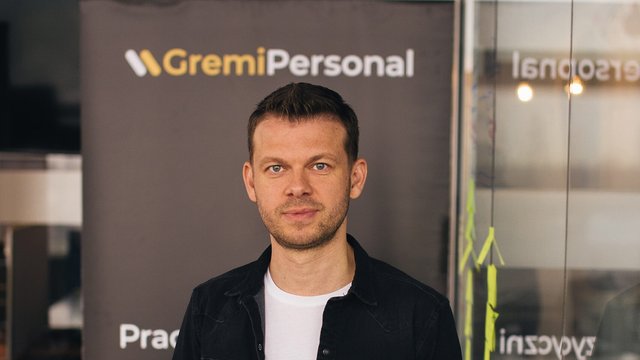Lost Between Borders: How Ukraine Can Bring Back Its Citizens

Yevhen Kirichenko, founder of the international employment company Gremi Personal
In May–June 2025, the Gremi Personal Analytical Centre conducted its own sociological survey among Ukrainian citizens living in Poland to find out how integrated Ukrainians feel in Polish society. The survey data showed that despite years of living abroad, many citizens still do not feel at home in Poland and consider returning home a real option. However, this is conditional on basic guarantees: security, work, housing and a predictable government policy. Under these conditions, 17.9% of refugees surveyed by the centre plan to return to Ukraine.
Among the main reasons that push Ukrainians to return home are not the lack of documents or lack of language skills, but rather a lack of acceptance by the society. 69% of respondents have encountered negative attitudes from Poles, and 50% still have almost no casual contact with Poles outside of work.
At the same time, Ukrainians claim that negative attitudes towards them intensified during election campaigns and economic instability, when foreigners, particularly Ukrainians, became convenient scapegoats for Poles to blame for wage cuts, queues at doctors' offices and competition for social resources.
As a result, temporary refugees from Ukraine found themselves in a situation of twin realities: on the one hand, economic stability; on the other, a lack of long-term prospects and emotional security, forcing them to seek opportunities to return home.
But the question arises: how to organise the return of Ukrainians from abroad? Does Ukraine have a state strategy capable of repatriating our citizens?
International experience
Why is it important to talk about strategy? The experience of other countries shows that when it comes to the mass return of migrants from abroad, it is not isolated actions or private initiatives that prove truly effective, but comprehensive state policies.
Take Italy, for example. To encourage its citizens who had lived abroad for at least two years to return, the state reduced their income tax for five years and extended benefits to 13 years for teachers and scientists. As a result, between 2015 and 2021, approximately 24,500 expatriates took advantage of the programme, including 1,200 scientists and teachers.
Spain had several levels of programmes to encourage returning emigrants. For example, the state offered social security assistance to Spaniards returning from working abroad without sufficient work history. The country also offered grants to start a business and support with training in company management. And for specialists under the age of 36, it offered compensation for relocation and re-employment expenses.
It is also worth mentioning Israel, where the law on return has been in force since the last century. In addition to granting all Jews and their descendants the right to Israeli citizenship without additional conditions, the state has also offered repatriates a number of social guarantees, such as preferential tax and social status, special programmes for academics, businesspeople and their families with accompanying grants and Hebrew language courses. In addition, the Israel House network, through dozens of global centres, continues to advise anyone interested in working, living, studying or starting a business in the country.
Thanks to this government policy, tens of thousands of highly skilled Israelis (academics, IT specialists, etc.) returned to Israel every year.
Options for Ukraine
What lessons can Ukraine learn from the above experiences? Of course, it should focus on incentives: tax breaks or one-off grants, as we can see, enable countries to attract back their professionals and entrepreneurs.
Moreover, in the case of temporary migrants from Ukraine, we are not talking about people without prospects, but about specialists with experience working abroad — they have knowledge of European standards, business connections and new skills. And this experience is real capital that will return to Ukraine along with them and help rebuild the country after the war.
It is also essential to provide citizens who wish to return to their homeland with assistance in obtaining documents, housing and employment. Meeting these important needs increases the chances of their return significantly.
The law on multicitizenship, which has already been introduced in Ukraine, will also prevent the loss of specialists. After all, many Ukrainians, despite obtaining citizenship of other countries, do not wish to lose ties with their homeland and plan to do business in several countries at once.
And most importantly, it is necessary to constantly communicate with the diaspora. Not at the level of public figures or volunteers, but at the state level. Let it be official ‘hubs’ such as Israel House, community centres or unity centres. It doesn’t really matter. The main thing is that they strengthen trust and provide access to information among temporary refugees, rather than being just a populist project. The diaspora needs to hear what Ukraine has to offer and that it is truly needed by its state.
